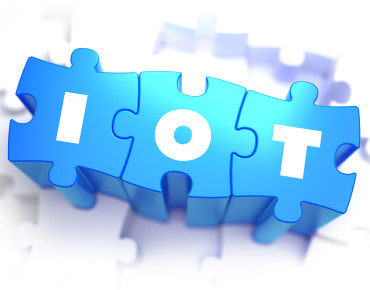IoT Developers Unify Interoperability Efforts

(Source: Shutterstock - Tashatuvango)
Silicon vendors are joining forces with appliance, software and platform specialists in the latest effort to forge Internet of Things (IoT) interoperability specifications.
The Open Connectivity Foundation unveiled late last week seeks to scale the emerging IoT ecosystem by including a broader array of device and equipment manufacturers. The goal is to create an open IoT interoperability spec that would allow a "range of consumer, enterprise and embedded devices and sensors from a variety of manufacturers [to] securely and seamlessly interact with one another," the group said.
The foundation unifies an earlier effort by expanding interoperability initiatives to connect platforms ranging from appliances and computers to phones and industrial equipment. To achieve scale, all would be able to communicate regardless of manufacturer, operating system, chipset or networking infrastructure, members said.
Intel Corp. (NASDAQ: INTC) and the Linux Foundation have been leading the charge for an IoT interoperability spec through an earlier effort called IoTivity. The Linux Foundation announced a related IoT effort last week to develop a scalable real-time operating system (RTOS). The project will focus on "modular, connected operating system to support the smallest footprint for IoT devices,” the Linux Foundation said.
Intel, which has expanded its presence in the RTOS sector via the acquisitions of Wind Rive and Altera Corp., is a prime mover behind the RTOS initiative along with NXP Semiconductors (NASDAQ: NXPI) and chip design specialist Synopsys Inc. (NASDAQ: SNPS).
Moving in parallel with that effort, the Open Connectivity Foundation is seeking to unify disparate IoT development efforts to enable devices, sensors, platforms and networks to work together. Along with Intel, Open Connectivity Foundation members include: Arris, a manufacture of customer premises equipment; CableLabs, the cable industry research arm; networking giant Cisco Systems (NASDAQ: CSCO); Swedish appliance maker Electrolux (STO: ELUX-B); industrial IoT specialist GE Digital (NYSE: GE); Microsoft (NASDAQ: MSFT); wireless chipset specialist Qualcomm Inc. (NASDAQ: QCOM); and Samsung Electronics (KRX: 00593).
The unification of IoT standards efforts comes as market analysts revise upward their estimates of IoT services spending. For example, Gartner is forecasting a 23 percent jump in IoT-related spending this year to nearly $235 billion. While "professional services" make up the lion's share of that total, the market research estimates that spending on connectivity services will reach $12.6 billion in 2016.

"We expect that 'things' will increasingly be connected to each other via a hub — either at home or in the cloud — that will aggregate, analyze, predict and even act [on] a user's behalf," Gartner analyst Jessica Ekholm added.
Separately, AT&T (NYSE: T) said Monday (Feb. 22) said its was integrating its IoT Services unit developing tools for building IoT apps with related technologies from Cisco, Intel and Microsoft. The collaboration gives the service access to Cisco's Fog computing platform, Intel's IoT developer kit and Microsoft's cloud, analytics and visualization tools, the partners said.
Related
George Leopold has written about science and technology for more than 30 years, focusing on electronics and aerospace technology. He previously served as executive editor of Electronic Engineering Times. Leopold is the author of "Calculated Risk: The Supersonic Life and Times of Gus Grissom" (Purdue University Press, 2016).










